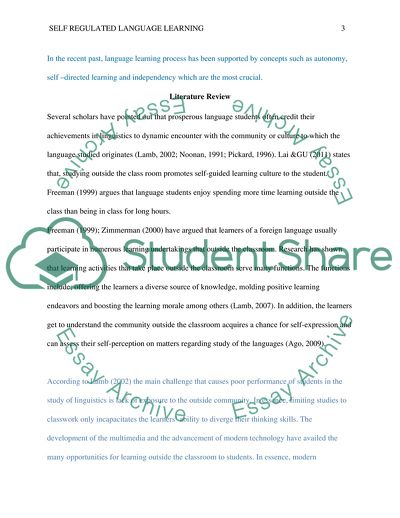Cite this document
(Self-Regulated Language Learning Literature review Example | Topics and Well Written Essays - 1500 words, n.d.)
Self-Regulated Language Learning Literature review Example | Topics and Well Written Essays - 1500 words. https://studentshare.org/humanitarian/1854579-self-regulated-language-learning
Self-Regulated Language Learning Literature review Example | Topics and Well Written Essays - 1500 words. https://studentshare.org/humanitarian/1854579-self-regulated-language-learning
(Self-Regulated Language Learning Literature Review Example | Topics and Well Written Essays - 1500 Words)
Self-Regulated Language Learning Literature Review Example | Topics and Well Written Essays - 1500 Words. https://studentshare.org/humanitarian/1854579-self-regulated-language-learning.
Self-Regulated Language Learning Literature Review Example | Topics and Well Written Essays - 1500 Words. https://studentshare.org/humanitarian/1854579-self-regulated-language-learning.
“Self-Regulated Language Learning Literature Review Example | Topics and Well Written Essays - 1500 Words”. https://studentshare.org/humanitarian/1854579-self-regulated-language-learning.


